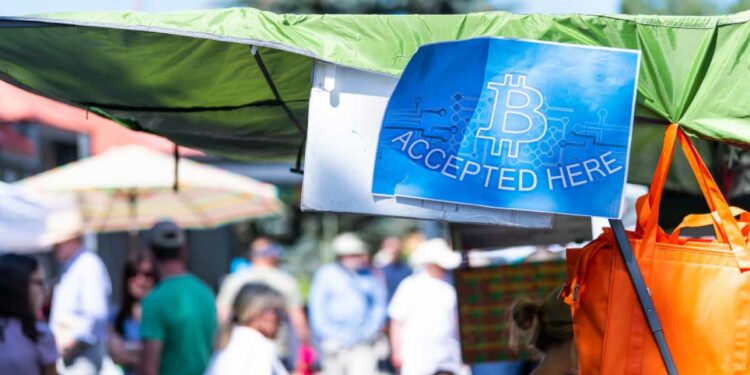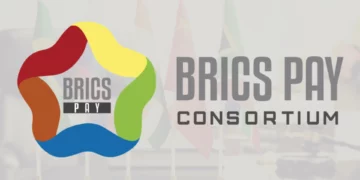On 7th September 2021, El Salvador became the world’s first country to adopt the Bitcoin cryptocurrency as a legal tender. After this endeavor, the country has seen a surge in the number of American tourists visiting its capital. San Salvador inhabits some of the most expensive boutique hotels.
After the adoption of cryptocurrency, the country saw tourists wearing T-shirts with a big capital orange ‘B’ across the chest. Sometimes the ‘B’ was followed by the words Bitcoin and Bukele. The masses have been aware that cryptocurrency’s success depends entirely on the events happening in El Salvador.
Budding Days of El Salvador as a Cryptocurrency Country
Nayib Bukele, the president of El Salvador, has become a beacon of light for many cryptocurrency enthusiasts.
Jack Mallers, the innovator of Strike, a payment portal of Bitcoin, expressed his feelings for the decentralized currency. The 27-year-old explained in a conference in Miami (on June 6, 2021) that cryptocurrency could do wonders for poor kids and their families.
When Nayib Bukele declared Bitcoin as a legal currency, the masses welcomed this revolutionary decision with a series of cheers and applause. Several days later a three-page law was drafted, which after approval, changed the entire direction in which El Salvador’s economy was heading.
Bitcoin is the highest valued cryptocurrency available on the market. It was created by Satoshi Nakamoto in 2009 as a decentralized currency for payments. Nakamoto was also the innovator of blockchain technology, through which Bitcoin transactions are managed. The currency was invented to introduce a transaction medium that had zero government control. The operations of this kind of technology are completely anonymous and private.
El Salvador is the most appropriate country for cryptocurrency legalization. The country inhabits around 6.5 million people, out of which 70% of the population does not own a bank account. The country’s main source of revenue comes from the allowances that the citizens receive from their families residing in the United States of America.
According to Nayib Bukele, the adoption of Bitcoin will create employment opportunities and financial inclusion of the population that is outside the formal economy. Bukele tweeted that Bitcoin possesses around USD 680 billion of market capitalization. In the same tweet, he mentioned that merely 1% of the Bitcoin investment in El Salvador would increase the country’s GDP by 25%.
Bitcoin Law in El Salvador
The Bitcoin Law in El Salvador allows merchants to accept monetary transactions in Bitcoin.
When the government application was launched, the president credited each Salvadoran’s account with USD 30 in Bitcoins to facilitate the utilization of the currency. The government has set up 200 ATMs throughout the country for citizens to convert Bitcoin into Dollars.
The masses have welcomed this decentralized currency with mixed emotions. Experts have more doubts than assurance owing to the volatile nature of the currency, that dips and surges within a very short window of time. The World Bank and the International Monetary Fund have dejected this medium of payment transactions.
Salvadorans expect the use of Bitcoin to be voluntary. The otherwise popular President Nayib Bukele has faced some amount of backlash from the citizens.
However, the Editor-In-Chief of Coindesk, Emily Parker, stated that the arrival of Bitcoin will not only boost El Salvador’s economy but will also allow other countries in the region to follow El Salvador’s pursuit. Parker stated that the currency can aid many Latin American countries that have low levels of banking engagement and allow remittances to be sent quickly and cheaply.
When asked about the effect on the Bitcoin community by the El Pais newspaper (a Spanish daily), Paker pointed out the mixed feelings of individuals concerning the currency. On one side, people welcome the currency as an essential step towards globalization, and on another, critics believe that the currency is blasphemous owing to its decentralized nature. Critics believe that currencies must be controlled by the government for safety and legality purposes.
Despite the mixed nature of the masses with regards to the Bitcoin legalization, Roxana Valles, owner of La Zonteña (a grocery store situated in El Zonte – 45 minutes away from San Salvador), spends most of his afternoons delivering his services to customers without leaving the government’s app for cryptocurrency.
The first ATM (that converts Bitcoin into Dollars) in the country was established at a close distance from his store. The store is located in a place that encompasses some of the best surfing spots (according to surfers) in America. This means that the store sees a lot of engagement from locals and tourists alike.
Roxana Valles said to El Pais, a Spanish daily, that he purchased USD 900 worth of Bitcoin at the beginning of 2021. Within 26 days of the purchase, Valles made an additional USD 500 from the investment. This surplus amount from the trading was withdrawn and invested in his grocery store, La Zonteña, to procure a shelf full of chips.
Three months later, Valles made another investment towards Bitcoin. He made another USD 500. After the El Salvador Government made Bitcoin a legal tender, Valles had made savings worth USD 2,094. With the currency’s legalization, the grocery merchant now engages his trade with cryptocurrency transactions. On some days, Valles sells almost 40 dollars in a variety of products, out of which one-third of the buyers purchase through Bitcoin transactions.
On enquiring about his experience in the trade, with the legalization of the currency, Valles stated that he was easily making more profits than his neighboring store. His store has seen more visitors than ever before and his competitors who haven’t yet embraced the currency have seen a decline in sales when compared to sales made by Valles’ La Zonteña.
During his conversation with the Spanish daily, El Pais, Valles noticed that the Bitcoin cryptocurrency had risen another 15 cents. The La Zonteña owner looked forward to future transactions of the digital currency after El Salvador made the currency a legal tender.


















